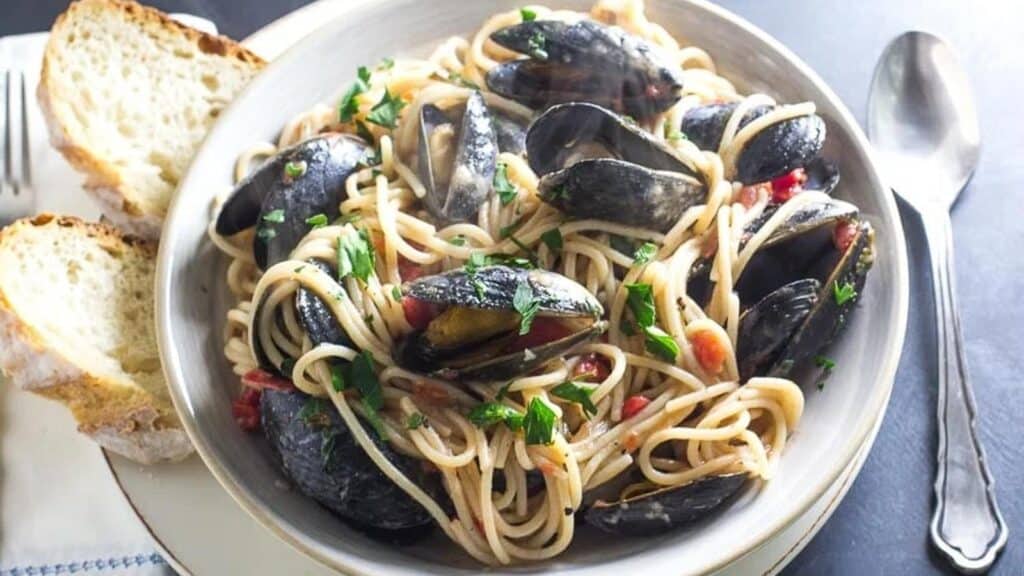That Extravaganza Was A Fiasco! 34 Italian Words We Use in Everyday English
The English language is a rich tapestry woven from the threads of many different languages, and Italian is one of the most significant contributors. From culinary terms to musical jargon, Italian words have seamlessly integrated into everyday English. This article explores the fascinating journey of these words, their origins, and their meanings in both languages.
Al Dente

Al dente literally means “to the tooth” in Italian and is used to describe the perfect consistency of cooked pasta—firm to the bite and not too chewy. This term is widely used in English to specify the desired texture of pasta and rice.
Antipasto

Antipasto translates to “before the meal” and refers to appetizers served before the main course. This term is commonly used in English to describe a variety of Italian appetizers, typically including olives, cured meats, and cheeses.
Ballerina

Ballerina is the Italian word for a female ballet dancer. In English, it retains the same meaning and is used to describe a professional female dancer in ballet.
Bravo

Bravo is an exclamation used to show approval, especially after a performance. In Italian, it means “good” or “well done” and is used similarly in English to applaud someone’s effort or performance.
Cappuccino

Cappuccino is a popular coffee drink made with espresso and steamed milk, topped with foam. The term comes from the Italian word for the Capuchin friars, whose brown robes resemble the color of the drink.
Ciabatta

Ciabatta means “slipper” in Italian, referring to the shape of this flat, rustic bread. In English, it is used to describe a type of Italian bread known for its airy texture and floury crust.
Diva

Diva originally referred to a distinguished female opera singer in Italian. In English, it has expanded to describe any woman, particularly in show business, who is temperamental or difficult to please.
Finale

Finale means “the end” in Italian and is used in English to describe the last part of a performance, such as a piece of music, a TV show, or an event.
Gelato

Gelato is the Italian word for ice cream, but it specifically refers to a denser, creamier version of the dessert. In English, it is used to describe this particular style of Italian ice cream.
Graffiti

Graffiti comes from the Italian word for “scribblings” or “drawings” and refers to unauthorized writing or drawings on public surfaces. In English, it retains the same meaning and is often associated with street art.
Influenza

Influenza is the Italian word for “influence,” but it also refers to the flu, a viral respiratory infection. The term entered English in the 18th century and is commonly abbreviated to “flu”.
Latte

Latte means “milk” in Italian. In English, it refers to a coffee drink made with espresso and steamed milk. Be cautious when ordering a “latte” in Italy, as you might just get a glass of milk.
Maestro

Maestro means “master” in Italian and is used to describe a distinguished conductor or musician. In English, it retains this meaning and is often used to refer to experts in various artistic fields.
Mozzarella

Mozzarella is a type of Italian cheese made from buffalo or cow’s milk. In English, it is widely used to describe this cheese, which is a staple in dishes like pizza and caprese salad.
Opera

Opera is an Italian word meaning “work” and refers to a dramatic art form that combines singing, music, and theater. In English, it retains the same meaning and is used to describe this genre of performance.
Panini

Panini is the plural form of panino, meaning “small bread” or “sandwich” in Italian. In English, “panini” is used as both singular and plural to describe grilled sandwiches.
Paparazzi

Paparazzi is the plural form of paparazzo, a term coined from a character in Federico Fellini’s film La Dolce Vita. In English, it refers to photographers who aggressively pursue celebrities for candid shots.
Pizza

Pizza is an Italian dish consisting of a flatbread topped with tomato sauce, cheese, and various other ingredients. It has become a global favorite and retains its original name in English.
Prima Donna

Prima Donna means “first lady” in Italian and originally referred to the lead female singer in an opera. In English, it is often used to describe someone, usually a woman, who is very demanding and self-centered.
Scenario

Scenario means “scene” or “setting” in Italian and is used in English to describe a sequence of events or a situation, particularly in planning or storytelling.
Solo

Solo means “alone” in Italian and is used in English to describe a performance by a single musician or singer. It can also refer to any activity done by one person.
Soprano

Soprano is the highest vocal range for female singers in both Italian and English. It is commonly used in music to describe this voice type.
Stanza

Stanza means “room” in Italian but is used in both languages to describe a grouped set of lines in a poem.
Tempo

Tempo means “time” in Italian and is used in English to describe the speed or pace of a piece of music. It is also used in sports to describe the pace of a game.
Vendetta

Vendetta means “revenge” in Italian and is used in English to describe a prolonged feud or conflict, often involving a cycle of retaliatory violence.
Villa

Villa means “country house” in Italian and is used in English to describe a large, luxurious house, often in a rural or semi-rural setting.
Virtuoso

Virtuoso means “skilled” or “expert” in Italian and is used in English to describe someone with exceptional skill, particularly in music or the arts.
Zucchini

Zucchini is the Italian word for a type of summer squash. In English, it is used to describe this vegetable, which is commonly used in cooking, such as in these Stuffed Zucchini.
Confetti

Confetti in Italian refers to sugar-coated almonds given out at celebrations. In English, it means small pieces of colored paper thrown during celebrations.
Fiasco

Fiasco means “bottle” in Italian but is used in English to describe a complete failure or disaster.
Ghetto

Ghetto originally referred to areas where Jews were forced to live in Italy. In English, it describes any segregated or impoverished area.
Propaganda

Propaganda means “information” in Italian but is used in English to describe biased or misleading information used to promote a political cause.
Mafia

Mafia refers to organized crime groups originating in Italy. In English, it retains this meaning and is often used to describe any organized criminal activity.
Extravaganza

Extravaganza means “extravagance” in Italian and is used in English to describe a lavish or spectacular event.
The Takeaway

The integration of Italian words into the English language is a testament to the rich cultural exchange between Italy and the English-speaking world. These words not only enrich our vocabulary but also provide a glimpse into the history, culture, and traditions of Italy. From culinary delights to musical terms, the influence of Italian on English is profound and enduring. Understanding these words and their origins enhances our appreciation of both languages and the cultures they represent.
Yiddish Words You Didn’t Know You Were Using Every Day

English is a vibrant mix of many languages and cultures, and Yiddish—a Germanic language traditionally spoken by Ashkenazi Jews—has left a notable mark on American English. How many of these words have made it into your vocabulary? Do you have a favorite? READ: Yiddish Words You Didn’t Know You Were Using Every Day
29 Arabic Words You Didn’t Know You Were Using Every Day

The English language is a melting pot of influences from various cultures and languages. Among these, Arabic has made a significant contribution, especially through trade, science, and cultural exchanges over centuries. This article explores the fascinating journey of Arabic words into everyday English, their origins, and their meanings in both languages.
Read: 29 Arabic Words You Didn’t Know You Were Using Every Day
36 Chinese Words You Didn’t Know You Were Using Every Day

The English language is a rich tapestry woven from the threads of many different languages, and Chinese is one of the significant contributors. From culinary terms to expressions and everyday objects, Chinese words have seamlessly integrated into everyday English. This article explores the fascinating journey of these words, their origins, and their meanings in both languages.
READ: 36 Chinese Words You Didn’t Know You Were Using Every Day
Join Us

Join us on this empowering journey as we explore, celebrate, and elevate “her story.” The Queen Zone is not just a platform; it’s a community where women from all walks of life can come together, share their experiences, and inspire one another. Welcome to a space where the female experience takes center stage. Sign up for our newsletter so you don’t miss a thing, Queen!







